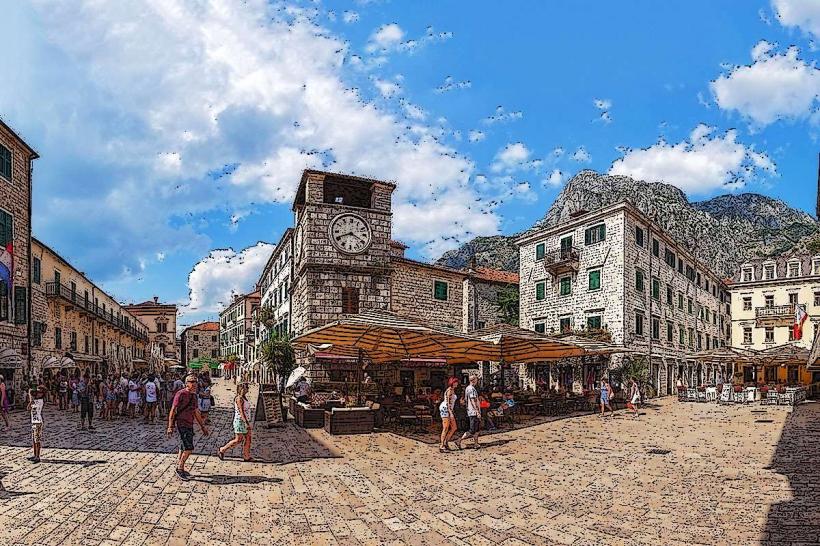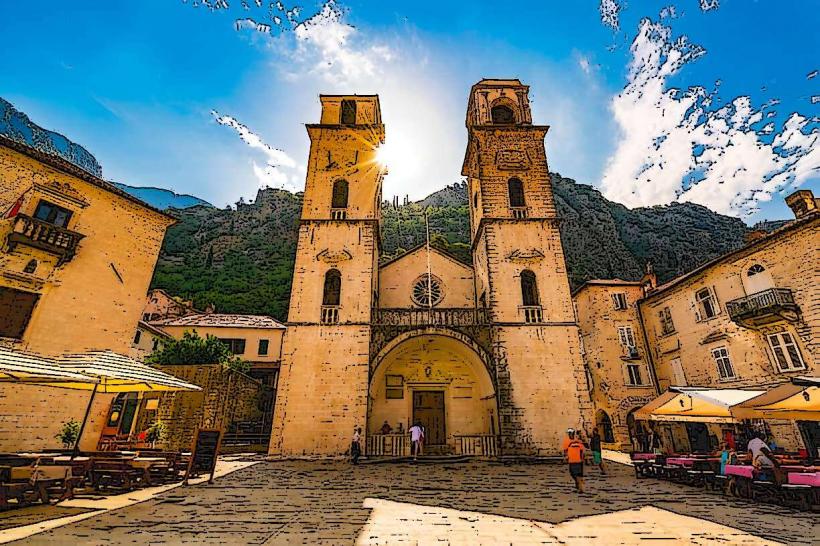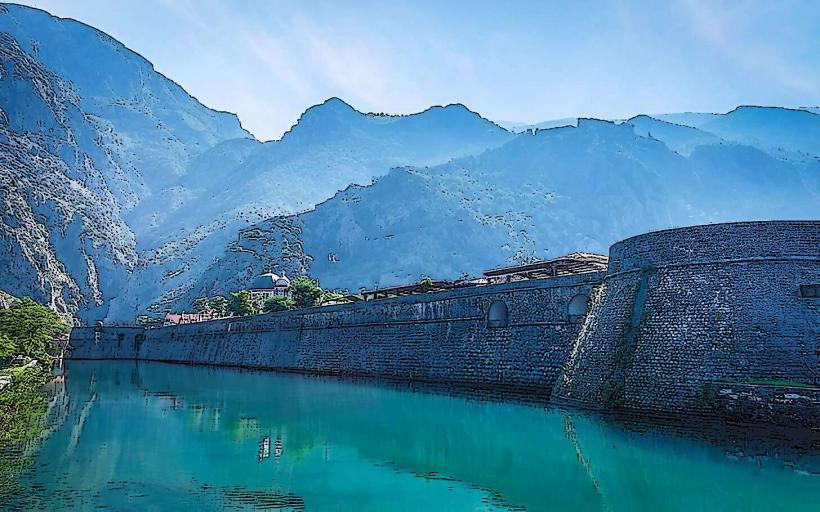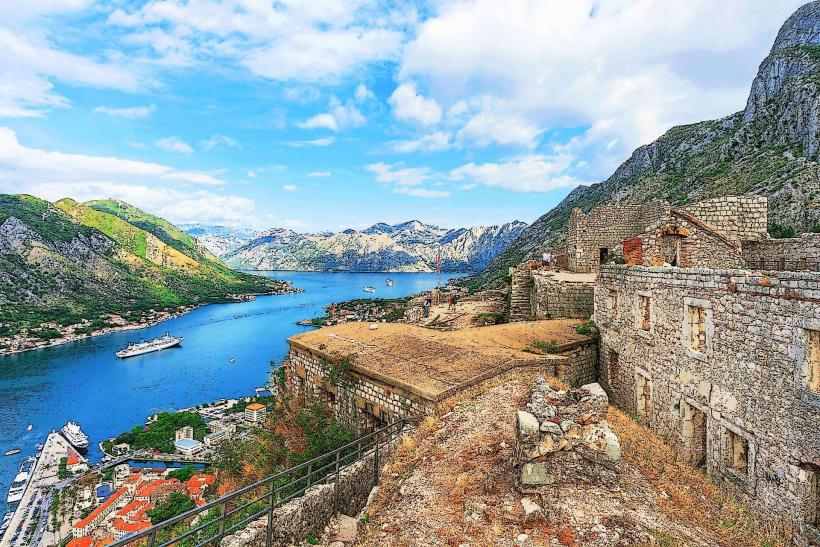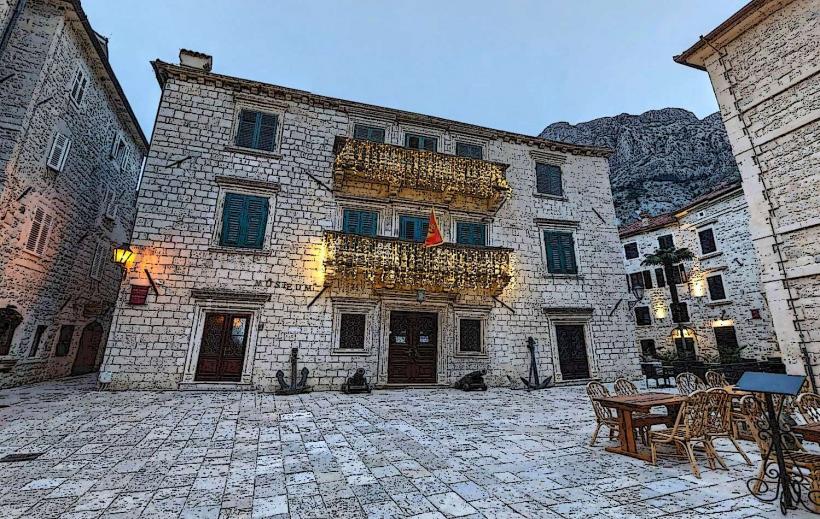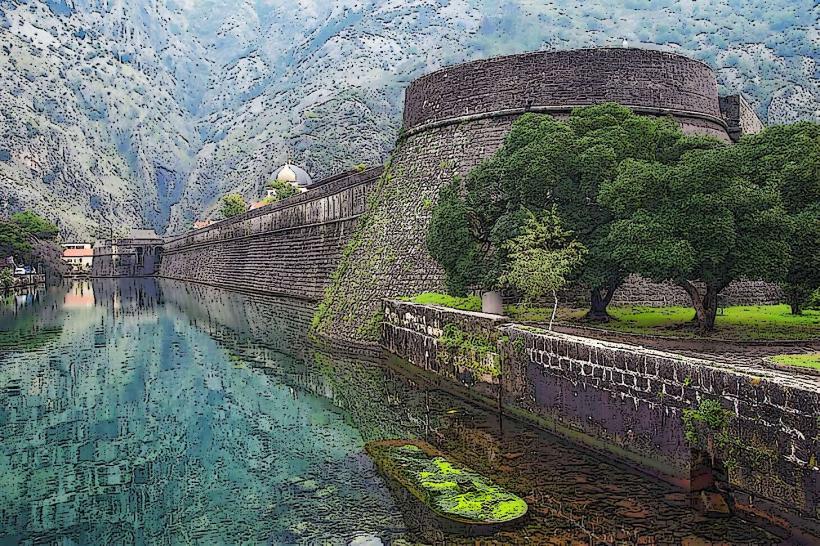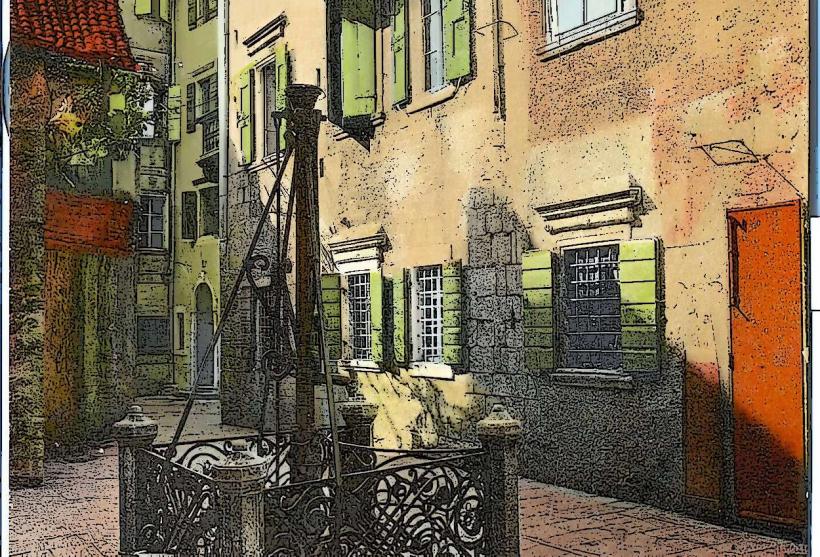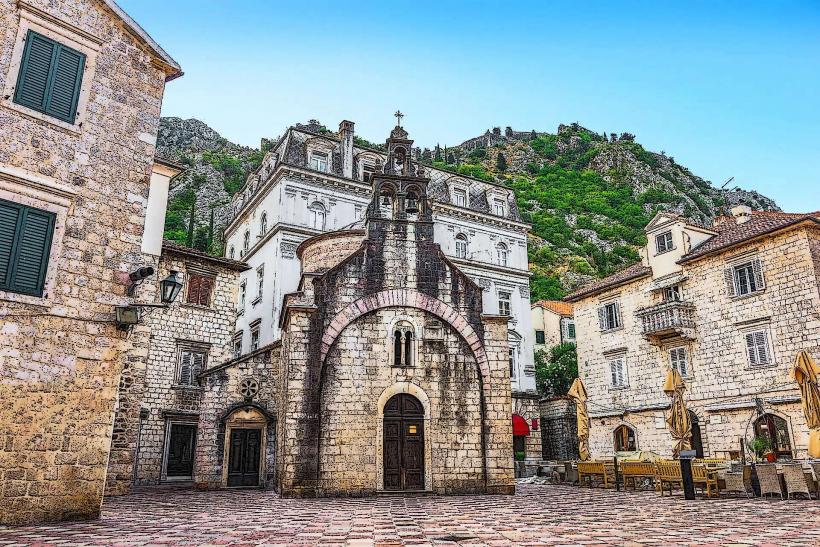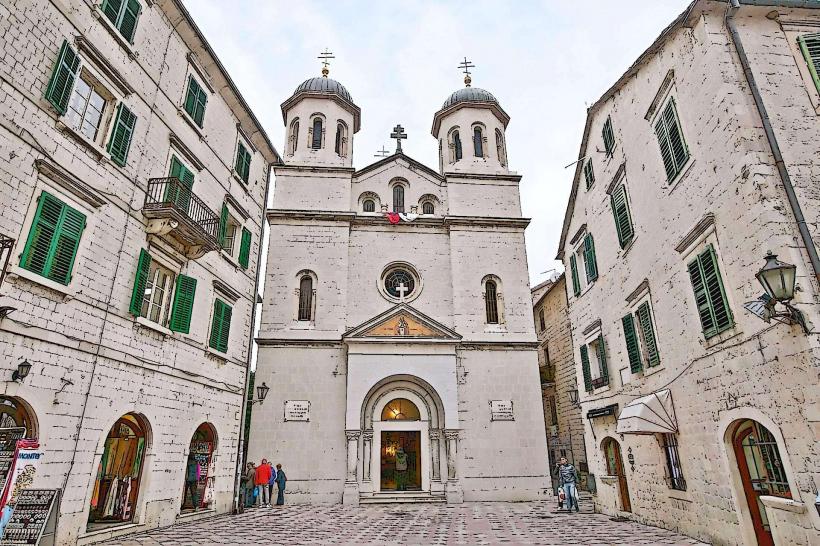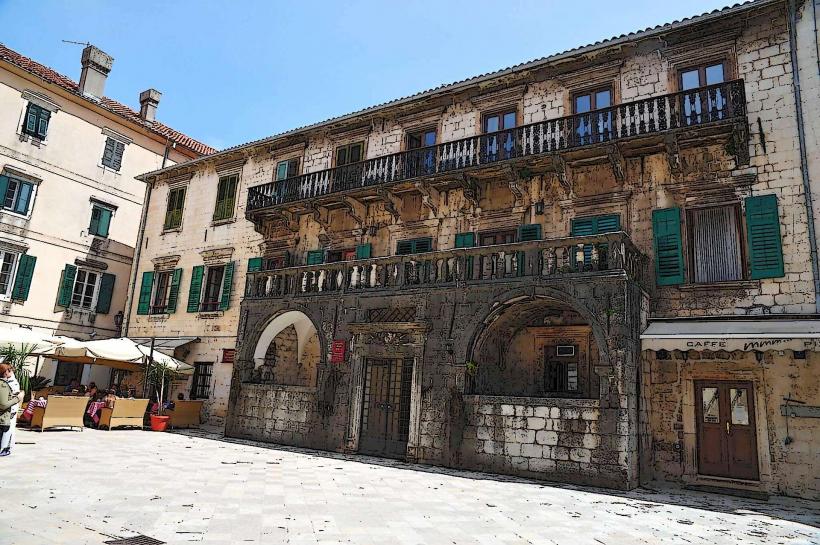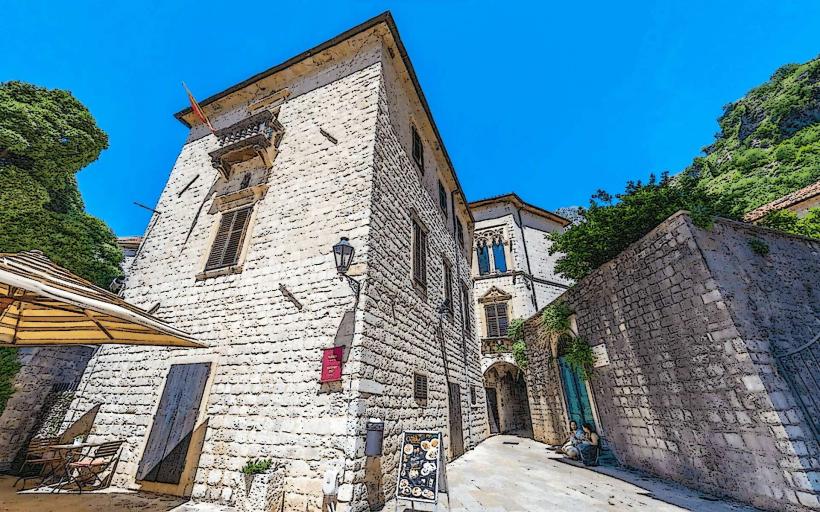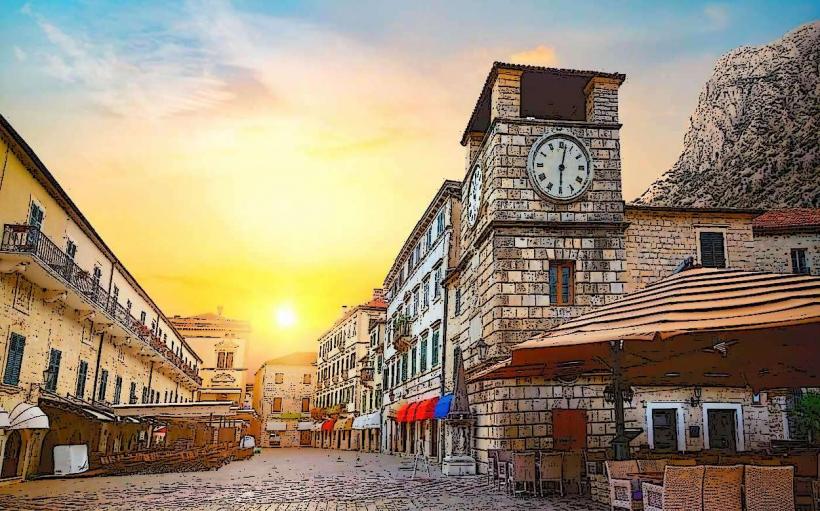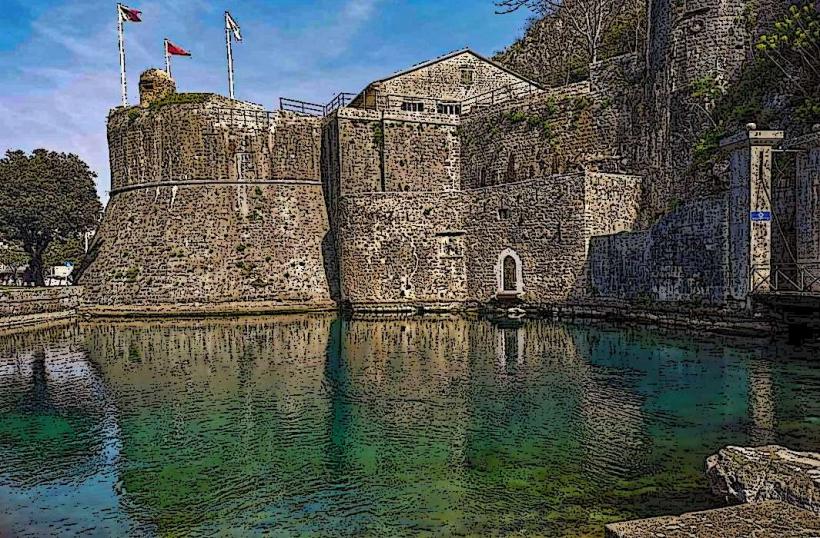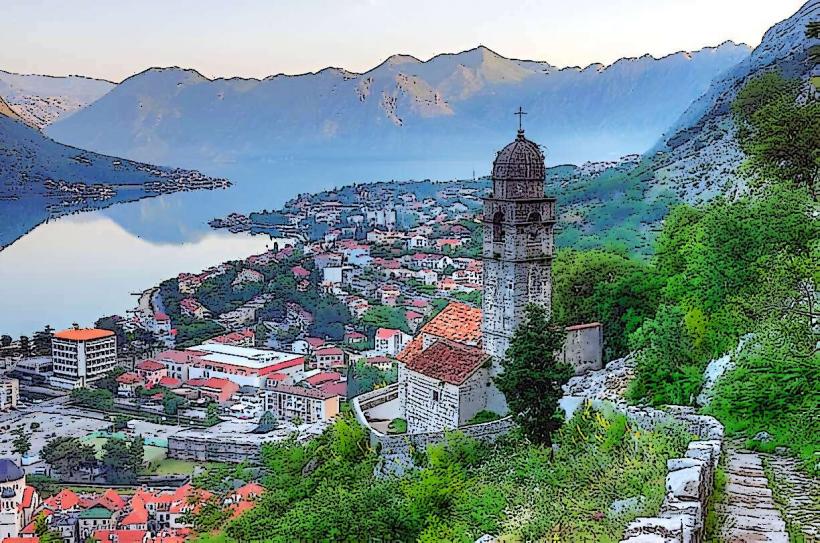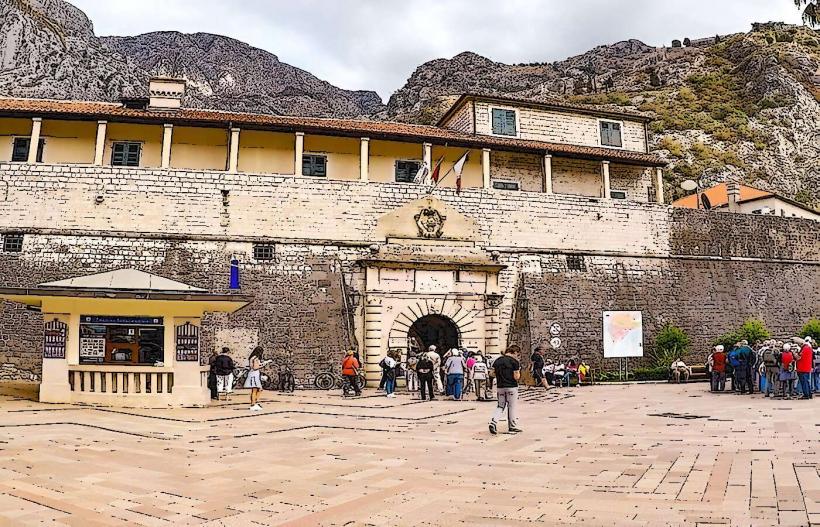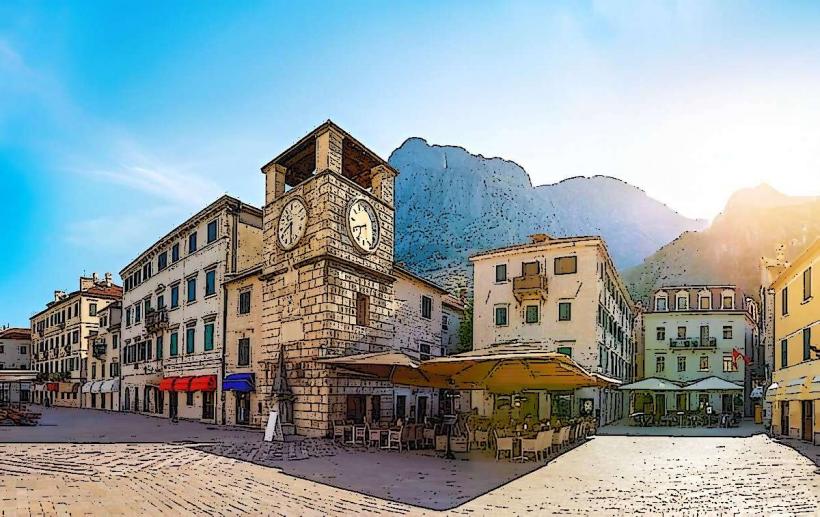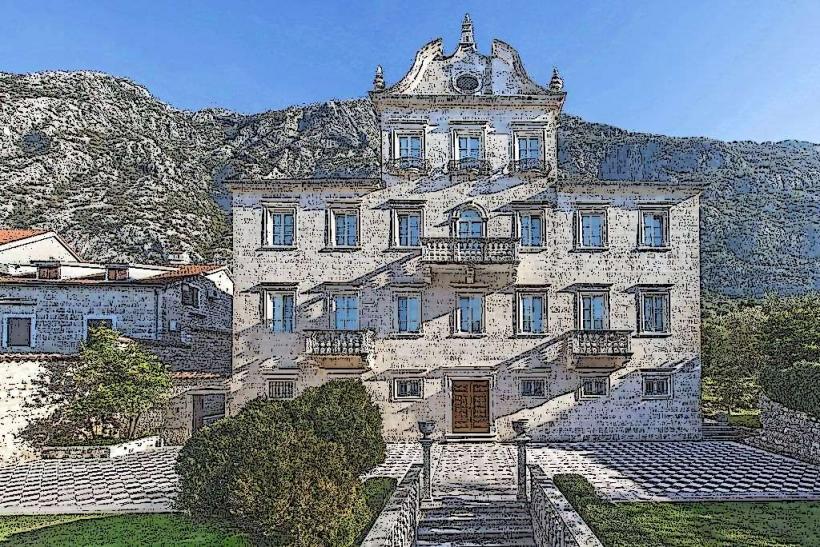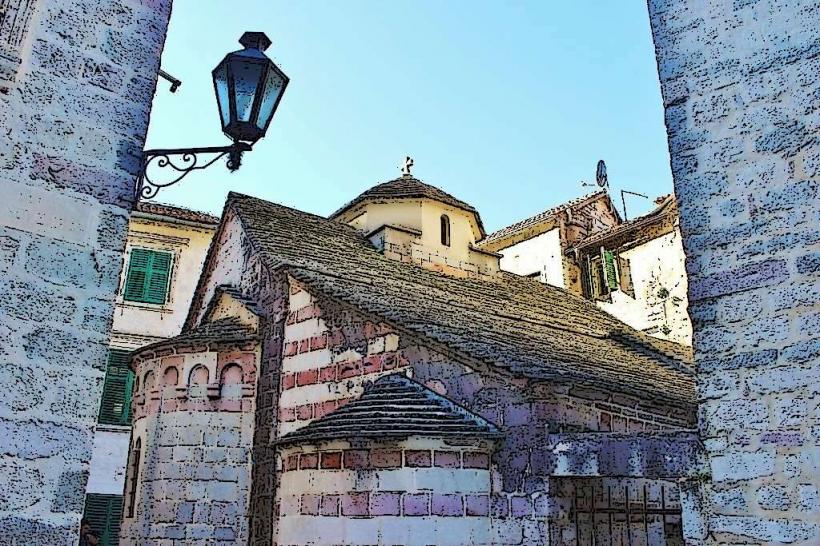Information
Landmark: Beskuca PalaceCity: Kotor
Country: Montenegro
Continent: Europe
Beskuca Palace, Kotor, Montenegro, Europe
Beskuca Palace (Palata Beskuca) is an important historical and architectural landmark located in the Old Town of Kotor, Montenegro. This elegant building stands as a testament to the town's rich cultural and aristocratic past, showcasing a blend of Venetian and Baroque architectural styles. The palace is part of Kotor’s heritage and contributes to the town’s inclusion on the UNESCO World Heritage list.
Historical Background
Beskuca Palace was built in the 17th century during the period when Kotor was under the control of the Republic of Venice. The Beskuca family, for whom the palace is named, were an influential noble family of the time, involved in both the political and economic life of the town.
The family’s prominence in Kotor's society was marked by their role in trade, finance, and local governance. The palace was a symbol of their status, reflecting the prosperity of Kotor during this period as a hub of commerce and culture in the Adriatic region.
Over time, the palace has undergone several renovations and restorations to maintain its structure and preserve its architectural integrity, particularly after periods of conflict and natural disasters that affected the region.
Architectural Features
The Beskuca Palace is an excellent example of Venetian Baroque architecture, blending the elegance and grandeur of the Venetian Republic with the local Adriatic styles. The palace's design is characterized by both functional simplicity and ornate decoration.
1. Exterior Design
The palace is a two-story building with a rectangular layout, typical of Venetian residential palaces. Its facade is constructed using stone, with a combination of rectangular and arched windows that allow for natural light while adding to the building’s aesthetic appeal.
The entrance is marked by a stone portal, with a carved coats of arms or family insignia that would have signified the Beskuca family. The palace also features decorative window shutters and stone embellishments along the exterior, highlighting the skill of local artisans who worked on its construction.
A key feature of the building is its balcony, typical of Venetian architecture, which allows for sweeping views of the Old Town and its surroundings. The balcony is adorned with stone balustrades, adding both a decorative and functional element to the design.
2. Interior Design
Inside, the Beskuca Palace maintains the elegance associated with Venetian aristocracy, though the interior is more modestly decorated compared to some of the grander palaces in the region. The palace likely includes spacious rooms with high ceilings, wooden beams, and ornate furnishings that reflect the Baroque style.
The rooms are designed for both functionality and comfort, with an emphasis on accommodating both the needs of the family and the hosting of guests. The palace's courtyard would have served as an area for relaxation and social gatherings.
The interior of the palace has been modified over time, but some original elements, such as the stone floors and wooden paneling, remain as a connection to its historic past.
Cultural and Symbolic Significance
The Beskuca Palace is a symbol of the noble heritage of Kotor and the Venetian influence on the region’s architecture. Its construction reflects the social and economic prosperity of Kotor during the 17th century, when it was a key port town in the Venetian Republic.
1. Aristocratic Heritage
As the residence of the Beskuca family, the palace is a reminder of the town's noble class and their significant role in the political and commercial affairs of the region. The palace was not only a private residence but also a venue for social gatherings and political meetings that shaped the local and regional history.
The palace's Baroque decoration and use of local materials also reflect the town’s position as an important center for trade, art, and culture in the Adriatic. The Beskuca family, like many Venetian nobles, would have used their wealth to enhance their status through architectural investments.
2. Venetian Influence
The Beskuca Palace is a clear representation of the Venetian influence on Kotor, which was under Venetian rule for several centuries. During this time, the Republic of Venice exerted significant cultural, architectural, and political influence on the towns and cities along the Adriatic coast.
The palace’s Baroque style and symmetry are trademarks of Venetian architecture, blending Italian Renaissance styles with more elaborate Baroque detailing that emerged in the 17th century. The stone carvings, arched windows, and elegant facades are hallmarks of the Venetian aesthetic that still define Kotor’s Old Town.
Restoration and Preservation
As a historic building within Kotor’s UNESCO World Heritage Site, the Beskuca Palace is protected and preserved as part of the city’s architectural heritage.
1. Modern-Day Preservation
The palace is part of the Old Town’s well-preserved collection of buildings, many of which date back to the Venetian and medieval periods. Restoration efforts aim to maintain the palace’s authenticity, preserving both the structural integrity and the historical details that make it an important part of the town’s heritage.
While the palace may not be open for public tours or used for commercial purposes, it remains a protected site within the historical fabric of Kotor. Visitors to the Old Town can admire the palace’s façade and appreciate its historical significance from the streets around it.
Visiting Beskuca Palace
Location: The Beskuca Palace is located in the Old Town of Kotor, a short walk from other important historical sites such as St. Tryphon’s Cathedral, the City Walls, and Kotor’s main square.
Access: While the Beskuca Palace is not open to the public for interior tours, visitors to Kotor can admire the palace’s exterior as they explore the Old Town. The building’s elegant façade and its location make it an important stop for those interested in Kotor’s historical architecture.
Nearby Attractions: The palace is situated close to many other notable attractions in the Old Town, making it an ideal place to visit while exploring Kotor’s rich cultural history.
Conclusion
The Beskuca Palace is a stunning example of Venetian Baroque architecture, reflecting the noble heritage and cultural prosperity of Kotor during the 17th century. Its rich history as the home of the influential Beskuca family makes it an important landmark in the town's historical and architectural landscape. Though not open to the public, the palace continues to be a symbol of Kotor’s aristocratic past and Venetian influence, contributing to the town’s place on the UNESCO World Heritage list.

